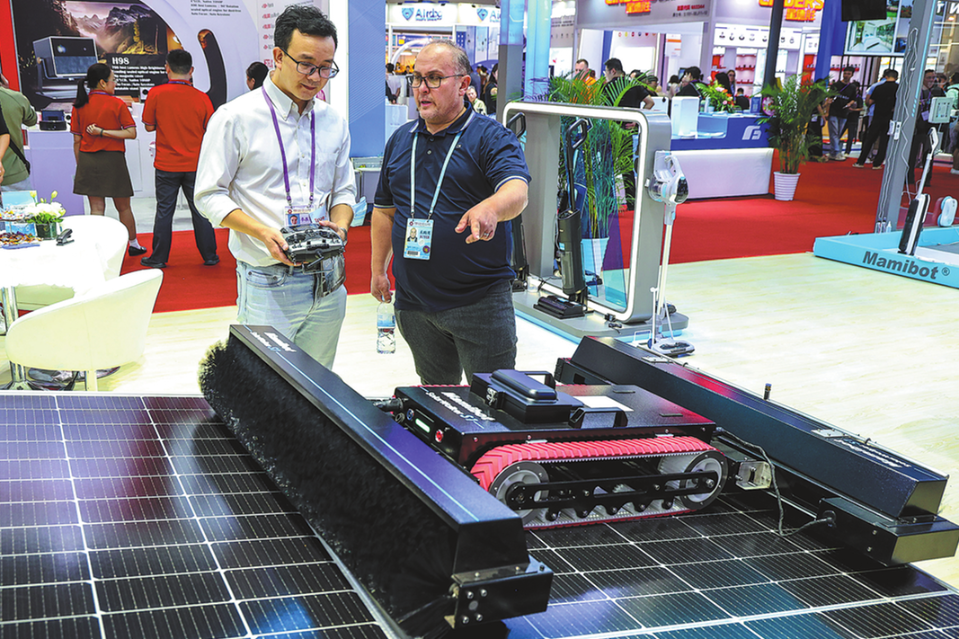Time to decouple from decoupling policy: China Daily editorial


US House of Representatives Speaker Mike Johnson recently echoed former president Donald Trump's call to repeal the CHIPS Act if he wins the presidential election, only to retract his statement a day later. This flip-flop underscores the political volatility surrounding China-US relations and the strategic decisions that will shape the future of both nations. As the election result is coming, it is crucial for the next administration to reassess the past four years of decoupling policies and high-tech barriers that have defined US-China economic and trade relations.
The CHIPS Act, designed to bolster domestic semiconductor manufacturing, has been a cornerstone of the US strategy to reduce dependency on overseas chips, including those from China. However, the act has also symbolized the broader policy of technological decoupling — a strategy shortsighted and detrimental to the US' own global competitiveness. Such decoupling policies could lead to significant losses for American businesses and industries by severing ties with the world's largest comprehensive industrial market.
The decoupling policy seems like a protective measure in the short term, its long-term implications could be far more damaging to the US economy and its technological leadership.
Decoupling from China means American companies losing access to a vast market that drives revenue and innovation. China is not only a major consumer of American tech products but also a significant player in the global supply chains. By cutting ties, US companies might find themselves at a competitive disadvantage, unable to leverage the scale and efficiency that collaboration with China offers. This could lead to increased costs, reduced market share, and a slower pace of technological advancement.
Furthermore, while decoupling might pose short-term challenges for China, it is actually accelerating China's efforts to achieve technological self-sufficiency and industrial upgrading. China has already begun to invest heavily in its own research and development capabilities, aiming to reduce its reliance on foreign technology. However, the implications of China-US relations extend beyond technology. The all-of-government approach to what the US defines as strategic competition with China has left little room for cooperation, let alone its mobilization of US global alliances and partnerships to cut China off from key international supply chains.
Different people have from different perspectives come to the conclusion that the 2024 presidential election will be significant no matter who wins. If the present epidemic of anti-China mindset sustains, it might as well kiss goodbye to hopes for a healthy, stable bilateral relationship. Beijing's wish is for China-US relationship to settle and for there to be "no conflict, no confrontation". But that calls for both sides to make practical efforts to manage differences and keep them at manageable levels.
The present political atmosphere in the US doesn't permit that. Being labeled as "soft" on China means being perceived as numbingly "weak". And Beijing has been a handy scapegoat in the US' political dramas, and both the Democrats and Republicans will be loath to lose public attention given their inertia in coming up with solutions to the US' domestic problems.
Beijing has time and again appealed for Washington to display reason in handling bilateral ties, which is no doubt in the fundamental, long-term US national interest. But too often immediate partisan interests take precedence in the real world. Johnson's latest flip-flop on the CHIPS Act was only a new footnote to that, and a reminder of the fact that by hook or by crook only votes matter.
In the current complex and turbulent international situation, the exploration of a correct way for China and the US to coexist not only serves the interests of both countries but also injects more certainty and positive energy into global peace and development.
The US presidential election presents a pivotal opportunity for a strategic reassessment of the policies that have governed the US' China policies over the past four years. Moving away from the myopic view of decoupling and toward a more balanced approach could enhance global competitiveness and innovation. Only by recognizing the potential benefits of engagement and the risks of isolation, the next administration can work toward a future where bilateral relations are marked by constructive dialogue and shared progress, rather than division and distrust.

































